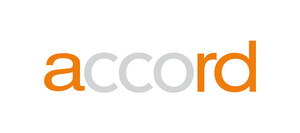NICE recommends ORGOVYX® (relugolix) as the first oral ADT treatment for hormone sensitive prostate cancer in England
- NICE has today published its final positive guidance recommending the use of relugolix for NHS England, acknowledging it as a cost-effective treatment option for patients with hormone sensitive prostate cancer.1
- Relugolix is recommended, within its marketing authorisation, as an option for treating prostate cancer in adults:1
- with advanced hormone-sensitive prostate cancer
- alongside radiotherapy for high-risk localised or locally advanced hormone-sensitive prostate cancer
- as neoadjuvant treatment before radiotherapy for high-risk localised or locally advanced hormone-sensitive prostate cancer
- Relugolix is an oral androgen deprivation therapy (ADT). This decision by NICE means those living with prostate cancer can now have a choice between receiving either an oral or injectable ADT.
▼ This medicine is subject to additional monitoring. This will allow quick identification of new safety information.
LONDON, Aug. 14, 2024 /PRNewswire/ -- Today Accord Healthcare announced that the National Institute for Health and Care Excellence (NICE) has published its final guidance recommending ORGOVYX® (relugolix) for the treatment of hormone-sensitive prostate cancer, recognising the treatment as cost-effective in England.1 The recommendation offers patients the choice to receive an oral preparation of an androgen deprivation therapy (ADT) for the first time.
Prostate cancer is the most common cancer in men across the UK with 44,000 new cases diagnosed in England each year and almost ten times as many men living with the condition.2 Since the early 1990s diagnostic techniques have advanced and prostate cancer incidence rates have increased by more than half (53%) in males in the UK (2017-2019).3
"Today's approval marks an important milestone for the prostate cancer community. Living with prostate cancer is a daily challenge. From my own experience as both a patient and medical professional, I understand the burden that prostate cancer can place on every facet of life." said Steve Allen, Retired Doctor, prostate cancer patient and patient representative at Tackle Prostate Cancer.
"Through the recent pandemic, we have seen a growing need for flexibility in treatment administration. I am grateful to NICE to allow eligible patients the option of taking an oral ADT treatment." said Professor Amit Bahl, Consultant Clinical Oncologist at Bristol Cancer Institute, University Hospitals Bristol.
Prostate cancer cells usually require androgen (male) hormones, such as testosterone, to grow.4 Stopping the release of testosterone from the testicles in prostate cancer is called medical castration5 and is a cornerstone of the medical treatment of prostate cancer. Injectable ADTs are the standard agents for achieving androgen deprivation for prostate cancer6. Relugolix is an oral ADT treatment for hormone-sensitive prostate cancer.
"The publication of NICE's Final Guidance is a hugely positive step for patients living with prostate cancer in England" said Paul Tredwell, Executive Vice President, EMENA, Accord Healthcare. "At Accord, we are committed to ensuring that patients have access to high quality medicines at the point of need and we are pleased to provide an additional treatment choice to the clinical community and those eligible men living with prostate cancer. We are proud to meet this milestone with such an important treatment in an area where innovations have previously been limited."
The NICE decision follows marketing authorisation granted by the Medicines and Healthcare products Regulatory Agency (MHRA) in June 2022 for the treatment of adult patients with advanced hormone sensitive prostate cancer. It further received a license variation for Great Britain in December 2023 to include use in combination with radiotherapy as neoadjuvant or adjuvant treatment in high-risk localised or locally advanced hormone-sensitive prostate cancer.7
Notes to editors
About relugolix
Relugolix is a gonadotrophin-releasing hormone (GnRH). By binding to the GnRH receptor, GnRH antagonists reduce the production of testicular testosterone, known to stimulate the growth of prostate cancer cells. Relugolix rapidly inhibits pituitary release of luteinizing hormone (LH) and follicle stimulating hormone (FSH) and has been shown to lower testosterone levels.6
Relugolix was granted Marketing Authorisation by the MHRA in June 2022 for the treatment of adult patients with advanced prostate cancer who respond to hormone therapy.7 It further received a license variation for Great Britain in December 2023 to include use in combination with radiotherapy as neoadjuvant or adjuvant treatment in high-risk localised or locally advanced hormone-sensitive prostate cancer.
About the HERO trial
In the HERO trial, 934 men were randomised 2:1 to daily oral relugolix or leuprolide (leuprorelin), a synthetic ADT given by depot subcutaneous or intramuscular injection every 3 months.6
Of men who received relugolix (n= 622), 96.7% (95% confidence interval [CI], 94.9 to 97.9) maintained castration from day 29 through 48 weeks, as compared with 88.8% (95% CI, 84.6 to 91.8) of men receiving leuprolide (n=308). Key secondary end points included cumulative probability of castration of testosterone on day 4 and day 15, profound castrate levels (<20 ng per deciliter) on day 15, and PSA response at day 15 followed by conformation at day 29; all were in favour of relugolix over leuprolide (P<0.001). The overall incidence of adverse events was consistent across treatment groups. Adverse events that occurred in >10% of patients in either group included hot flashes (54.3% vs 51.6%), fatigue (21.5% vs 18.5%), constipation (12.2% vs 9.7%), diarrhoea (12.2% vs 6.8%), arthralgia (12.1% vs 9.1%), and hypertension (7.9% vs 11.7%). Among all the patients, the incidence of major adverse cardiovascular events was 2.9% in the relugolix group and 6.2% in the leuprolide group (hazard ratio, 0.46; 95% CI, 0.24 to 0.88). 6
About Accord Healthcare
Headquartered in the United Kingdom (UK), Accord Healthcare, Ltd. is one of the fastest growing pharmaceutical companies in Europe.
Accord has one of the largest market footprints among European companies in its category ensuring that over 95% of European patients get access to vital medicines. Accord has over 54 oncology and oncology-related treatments making it one of the largest suppliers of chemotherapy products in Europe with an additional 20 treatments which are currently in development and scheduled for launch over the next 5 years.
Our approach is agile and inventive, always seeking to improve our products and patients' access to them. We're driven to think differently and deliver more for the benefit of patients worldwide.
References:
1 National Institute for Health and Care Excellence. Final Guidance. Available at Overview | Relugolix for treating hormone-sensitive prostate cancer | Guidance | NICE
2 Prostate Cancer UK. About Prostate Cancer. Available at: https://prostatecanceruk.org/prostate-information-and-support/risk-and-symptoms/about-prostate-cancer Last Accessed August 2024
3 Cancer Research UK. Prostate Cancer statistics. Available at https://www.cancerresearchuk.org/health-professional/cancer-statistics/statistics-by-cancer-type/prostate-cancer#heading-Zero Last Accessed August 2024
4 Cancer Research UK. What is hormone therapy for prostate cancer. Available at https://www.cancerresearchuk.org/about-cancer/prostate-cancer/treatment/hormone-therapy/about-hormone-therapy#:~:text=Prostate%20cancer%20usually%20depends%20on,have%20it%20with%20other%20treatments. Last Accessed August 2024
5 Cleveland clinic. Chemical castration: Treatment, Procedure & Side Effects. Available at: https://my.clevelandclinic.org/health/treatments/22402-chemical-castration Last accessed August 2024.
6 Shore, Neal D., et al. "Oral relugolix for androgen-deprivation therapy in advanced prostate cancer." New England Journal of Medicine 382.23 (2020): 2187-2196
7 Medicines & Healthcare products Regulatory Agency. Public Assessment Report. Available at https://mhraproducts4853.blob.core.windows.net/docs/a027a8efa27937234d149e3577bc4b983840ad5b Last accessed August 2024







Share this article